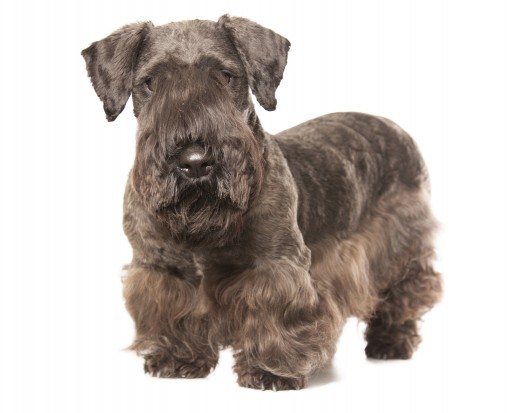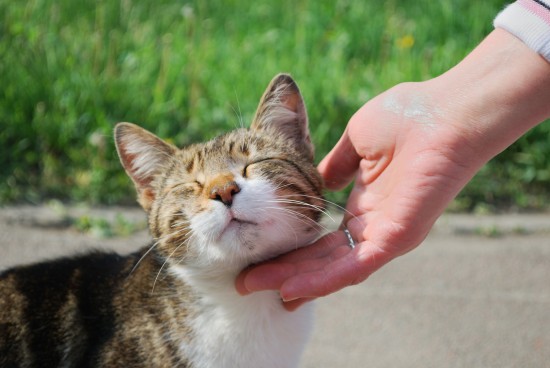As a dog owner you are responsible to keep your dog healthy. Below are some of dog health problem symptoms and its treatments for your dog.
Cataracts
A cataract is an eye lens that has hardened and become opaque, causing varying degrees of blindness. It is usually prevalent in old dogs, and dogs that have been affected by diabetes.
Treatment: An operation needs to be performed by a specialist to remove the cataract. The vision of the dog is usually improved dramatically.
Cystitis
This is inflammation of the bladder; it is often caused by a chill. If the dog cries out when passing urine and his undercarriage seems tender then this is usually a symptom.
Treatment: Seek the advice of a veterinarian.
Conjunctivitis
Inflammation of the transparent membrane which covers the eyeball. The symptoms are: Irritation, redness, excessive tearing and discharge, often eyelids is stuck together in the morning. It may be caused by a number of germs.
Treatment: Depends on what germs are present. Bathe the eyes with warm water, and then apply a saline solution or boracic acid dissolved in water. If the inflammation does not clear up seek veterinary assistance.
Dermatitis
This may occurs as a result of bacteria invading and infecting the skin, causing various skin diseases.
Symptoms: Pustules, sores, boils and acne. All of these become aggravated when the dog licks or scratches them.
Treatment: Shave the coat to allow the application of a disinfectant soap. After the area is cleaned thoroughly an antibiotic ointment should be applied to the area. Systemic antibiotics in the form of pills may be used in extreme cases.
Ear Complaints
Doberman's can be prone to blood clotting in the bottom of the ear. If this happens, a bubble of blood forms, which needs to be pricked to release the blood. The ear will appear to be crinkled and chewed. This is not a common problem with German Shepherds.
Treatment:Do not clean the dogs ear with water or any other liquid or substance not recommended by the Departments Veterinarian. If you do not like the idea of pricking the blood bubbles yourself, the veterinary will lance and stitch the ear for you.
Eczema
May be the result of poor diet, excessively dry skin, allergies, fleas and in some cases, humid climates. It may also be hereditary.
Treatment:A recommended lotion may be required as well as an increase in the dogs fats and vegetable oils. Regular brushing will also stimulate oil glands as well as keep the coat clean. Seek the Chief training instructors advice on what course of action to take. Where a dog is not responding to treatment veterinary assistance may be required.
Flies
Flies can be a major problem during the summer months. They can cause aggravation and damage to the outside ear if left untreated; Flies are determined little insects that are aggravating by nature.
Treatment:Antiseptic cream, Fly repellents: Fly repeller (Troy Labs) - Cream or N.Dem - Liquid.
Hair loss
Causes of hair loss include mange, both Demodectic and Sarcoptic, ringworm (fungal infection). Dogs may be infected by both this and a soil-borne form of the disease. The first form is highly contagious but the resultant patches on the skin respond well to antifungal drugs and a daily application of iodine solution.
Symptoms:Hormone changes within the body, in particular low level of thyroid activity, this can produce either hair loss or local areas of sparsity, often on the thighs and bottom of the chest. The skin underneath these areas feels cold, and the vet will be able to diagnose the problem by blood testing.

 Ten Of The Best Dog Breeds For Allergy Sufferers
Ten Of The Best D
Ten Of The Best Dog Breeds For Allergy Sufferers
Ten Of The Best D
 Comfortable Chicken Houses Keeps your Chickens Healthy, Wealthy, Wise
Comfortable Chicken Houses Keeps your Chickens Healthy, We
Comfortable Chicken Houses Keeps your Chickens Healthy, Wealthy, Wise
Comfortable Chicken Houses Keeps your Chickens Healthy, We
 The Breed Standard And Appearance Of The Cesky Terrier
The Breed Standar
The Breed Standard And Appearance Of The Cesky Terrier
The Breed Standar
 Socialising Your Kitten Or Young Cat
Socialising Your
Socialising Your Kitten Or Young Cat
Socialising Your
 Golden Retriever Puppies The Perfect Pet
Golden Retriever Puppies The Perfect Pet
Are
Golden Retriever Puppies The Perfect Pet
Golden Retriever Puppies The Perfect Pet
Are